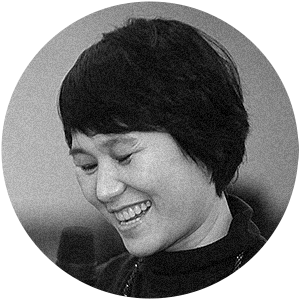

Technical Translation


HansemEUG CEO, Ms. Yangsook Kim recently wrote an article in tcworld: an international magazine that publishes TC-related articles, news and event reports for TC companies and professionals. Ms. Kim’s article offers insights into the precise set of skills required of technical writers in Korea and Japan, and dissects differences between the Korean and Japanese workplace and the wider world.
The article has been positively received by readers and can be read here: tcworld
For ten years, I have been attending the JTCA symposium, a leading conference for technical communication in East Asia held in Japan. Over the years I have learned that many managers of technical communication departments of Korean and Japanese organizations share a common concern: How to find qualified technical writers.
This concern has taken me on a quest to find out what knowledge and qualifications a technical writer needs, what kind of training we need to provide, and how we can help staff to develop into qualified technical writers. As the CEO of a tech comm company, I also wanted to find out how we can recognize suitable candidates for technical writing jobs and help them to enhance their skills.
To find answers, I looked abroad into markets where the tech comm community has been well established for decades. I read books and magazines published in the US and even attended US seminars. I quickly discovered, however, that the key focus of Japanese and Korean technical writers was completely different from that of American technical writers. American tech writers cover a huge product range from industrial machines, IT products, medical appliances, software solutions, heavy equipment, and specialized devices. Professional background knowledge is indispensable for understanding the technology of the product they describe; thus, great focus is placed on providing the proper product training to tech writers.
Korean and Japanese tech writers, on the other hand, are mainly concerned with consumer products. The main focus for technical writers here is to enhance their knowledge and qualifications for creating consumer product manuals. The specialization of Japanese and Korean tech writers lies within their technical writing skills. These must meet the needs of consumers from around the world, as home appliances, cars, computer games, and IT products manufactured in Korea and Japan attract global users and sell well in the global market. Product manuals for consumer goods should be developed consistently by a few technical writers who plan, arrange, write and design content and analyze user behavior.

So what skills are required for technical writers to develop such manuals? Based on 30 years of experience in the industry, I have concluded that many of the skills required for a technical writer to develop consumer product manuals are character traits rather than learned skills: Personal curiosity, understanding, creativity, consideration of consumers, and a certain tech affinity are all difficult to replace by automation.
Here is a list of skills – in order of importance – that I believe are essential for technical writers in Japan and Korea:
Based on my experience, the most important characteristic for a tech writer is insight into the target user. The evolution of technology, constant product changes, and new trends affect consumer taste and selection. With technological advances, not only must the content be adapted, but tech writers also need to consider the output format for product information. The young generation is more accustomed to YouTube than newspapers, so tech writers need to think deeply about the most effective way to reach this audience.
Particularly when you only have one person writing the entire manual, that person needs to be a communication guru. This writer needs to gather information from clients and colleagues of other departments and also continuously share information regarding changing consumer patterns with product developers. If the person doesn’t have the skills to gather information and use it to persuade others, he might not be the right candidate for the job.
Basic communication skills are required in almost every job. It is an especially important skill for consumer product manual writers, as they usually fill many roles at the same time – planner, content writer, account manager, and project manager. A tech writer developing a manual for a smartphone, for example, needs to consult with R&D engineers, analyze the main user tasks, arrange the information, and talk with clients, illustrators, graphic designers, and DTP technicians.
Most of all, the development period for consumer products is very short, so the manual writer has only a few months. For a short development period, one-person management is the most effective method. Usually, the manual volume for consumer products is less than 100 pages, so one-person writing is manageable and will ensure a consistent quality.
In the past, user information was delivered as text in a printed manual, so the most important skill was good writing. Of course, this skill is still valid: User information needs to be logical and systematic, and effectively convey the message. But as today’s users expect to get information in a variety of formats and from various sources, a manual writer should be able to use new tools to deliver user information. Which tool is best suited for delivering user manuals to the particular target group? Have you considered animations, video clips or voice memos? Before deciding on alternative formats, consider the fact that costs will multiply if you need to publish user information in various languages.
In my point of view, understanding the features and technology applied to a product is a skill necessary for developing B2B product manuals, but it ranks low for developing consumer devices. It is much easier to analyze the features and technologies of B2C products than those of B2B products. For this reason, special product knowledge is not an essential requirement.

Based on my experience, the skills required for consumer product manual writers can’t be learned or taught. These rely on the writer’s innate characteristics and talent. To deliver effective user information to today’s consumers, the consumer product manual writer should have the whole package: Basic empathy in order to understand the user’s position, open-mindedness in accepting the changing trends in technology, and the ability to merge and apply both qualities to manuals effectively and creatively.
Hansem Global is an ISO Certified and globally recognized language service provider. Since 1990, Hansem Global has been a leading language service company in Asia and helping the world’s top companies to excel in the global marketplace. Thanks to the local production centers in Asia along with a solid global language network, Hansem Global offers a full list of major languages in the world. Contact us for your language needs!
 Transforming B2C Sales Training with Gamification
04.14.2024
Transforming B2C Sales Training with Gamification
04.14.2024
 The Impact of Localization on Salesforce’s Success with Hansem Global
04.07.2024
The Impact of Localization on Salesforce’s Success with Hansem Global
04.07.2024
 Mastering Right-to-Left (RTL) Language Localization: Avoid the Top 5 Desktop Publishing (DTP) Mistakes for Global Success
04.03.2024
Mastering Right-to-Left (RTL) Language Localization: Avoid the Top 5 Desktop Publishing (DTP) Mistakes for Global Success
04.03.2024